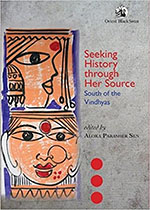Aloka Parasher Sen’s edited volume under review comprising a collection of eight essays recognizes the need to seek ‘out the “reality” of the past rather than its “truth”’ (p. 2). Inspired by Hayden White’s essay on historical fiction and historical reality, wherein White explains that ‘The real would consist of everything that can be truthfully said about its actuality plus everything that can be truthfully said about what it could possibly be’, (White: p. 147), the central idea of the collection clearly underscores that there can be no finality in historical interpretation and that the practice of history writing is always discursive and dialogic with multiple narratives comprising many possibilities of historical totality.[1]
In the ‘Introduction’, Parasher Sen explains that the essays have attempted to prioritize those sources that have either been confined to footnotes of historical studies, often being used as handmaidens to the dominant account, or sources that are disregarded because they appear as ‘fragments’, out of context in the maze of the grand narratives of Indian historiography.

